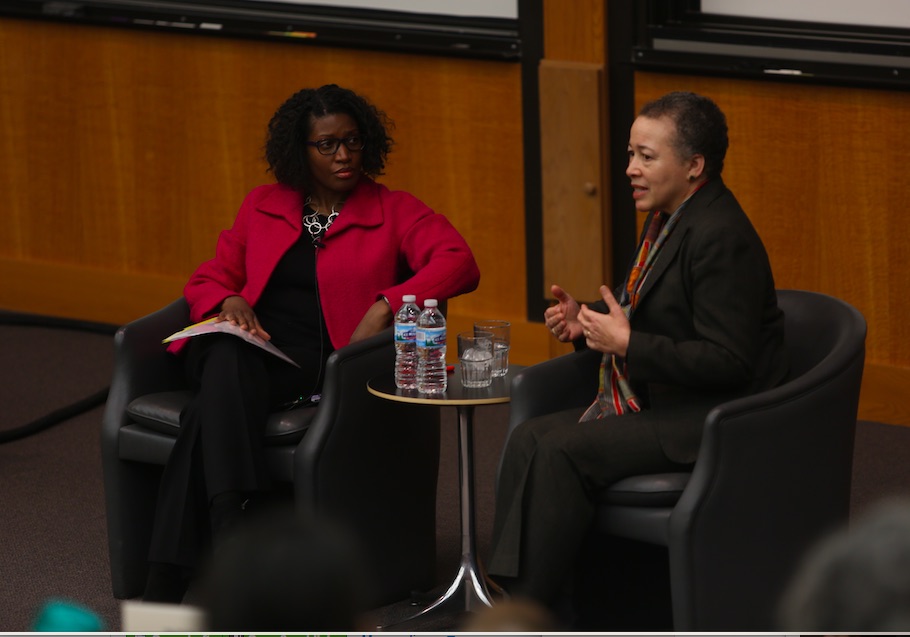Beverly Tatum, president emerita of Spelman College and acclaimed clinical psychologist, shared insights on the state of race relations in the U.S. during a talk Thursday at Northwestern University’s Evanston campus.
Tatum, author of the widely-acclaimed book “Why are all the Black Kids Sitting together in the Cafeteria?” said leaders – and the general public – must encourage diversity and promote social cohesion.
Leadership matters
Drawing on her extensive clinical psychology background, Tatum told a crowd of more than 200 that although humans are prone to categorizing people and things, “defining who the ‘us’ is and who the ‘them’ is not innately determined. It’s socially determined.” Not unlike social animals, Tatum said, we look to leaders to draw these boundaries for us.
“The leader can define the us very broadly or narrowly. And we’re living in a moment where us is being defined very narrowly,” she told the audience. “Leadership matters in terms of how we signal who is in and who is out.”
Use your sphere of influence
Using a recent Starbucks incident -- in which two black men were arrested for loitering while waiting for a business meeting at the coffee shop -- as an example, Tatum illustrated how each of us can use our sphere of influence “to interrupt the cycle of racism.”
"Some of us have a bigger sphere than others. If I'm the president of an organization or head of Starbucks, I have a big sphere of influence,” she said. “But the manager of that Philadelphia Starbucks had a sphere of influence. People picking up their phones had a sphere of influence. Everybody has a sphere of influence.”
Tatum was interviewed by Celeste Watkins-Hayes, professor of sociology and African American studies. Answering a question about what universities can do to improve race relations, Tatum said higher education has a special opportunity.
“What’s unique about higher education in the U.S. is that it’s one of the few places where people from different backgrounds converge,” Watkins-Hayes said. “This may be the students’ first opportunity to engage in a regular way with people whose life experiences are different from their own.”
One potential solution Tatum suggested was inter-group dialogue, a phenomenon that’s increasingly being adopted by colleges, she said. Some universities are considering making such dialogue a graduation requirement, Tatum said, adding that observers have seen benefits long after graduation for students who participated in such programs.
“If you want to be an effective leader in the 21st century, you need to know how to engage with people who are different from yourself,” Tatum said.
Tatum’s interview was sponsored by the Provost’s Advisory Council on Women Faculty, comprised of approximately 50 faculty across the University. The council is co-chaired by Lindsay Chase-Lansdale, vice provost for academics, and Jabbar R. Bennett, associate provost for diversity and inclusion.


